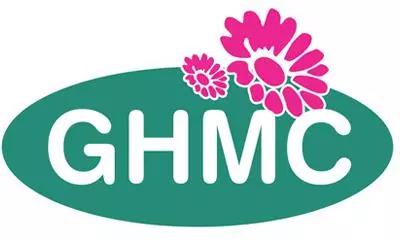GHMC Launches Massive Dengue and Malaria Control Measures

Hyderabad: Amid rising cases of vector-borne diseases across the state, including the city, particularly dengue, parents are concerned about their children's health. Rising to the occasion, anti-mosquito operations are being intensified in the city with the Greater Hyderabad Municipal Corporation (GHMC) coming up with a comprehensive action plan involving multiple departments and a workforce of 1,800 anti-larval workers, officials told Deccan Chronicle here on Sunday.
The entomology and health departments have jointly launched a series of measures to address the issue. "We are conducting medical camps and health check-ups in schools, hostels and high-risk areas like Khairatabad, SR Nagar, and Ameerpet," said a senior GHMC official.
The aim is to identify and treat cases of fever and other symptoms associated with dengue and other vector-borne diseases on a priority basis.
The GHMC is implementing a robust surveillance system to keep track of mosquito breeding sites. "Our teams are conducting house-to-house surveys in 4,846 colonies, targeting cellars, construction sites, function halls, and low-lying areas," explained Ram Babu, the civic body’s chief entomologist. Each anti-larval worker is assigned to three colonies. Major breeding grounds like spaces where there are sizable automobile tyres, large drums and coolers that are not properly cleaned and scrubbed to remove mosquito eggs, are being specifically targeted. He informed that fogging too has been intensified and will be done at regular intervals.
“If and when we come across a case or information of intensified need, we increase the measures to twice a week at such schools," added the official.
The GHMC is also focusing on public education through an Information, Education, and Communication (IEC) campaign. Schools are being targeted with awareness programmes, emphasising the importance of source reduction and proper waste management.
These activities are aimed at reducing mosquito breeding grounds and educating the community, especially schools, primarily through biology teachers, about preventive measures.
Town planning departments are being roped in to address water stagnation issues and penalise violations. "We are issuing show cause notices to violators and imposing penalties for non-compliance," stated a GHMC representative. This initiative is part of the effort to maintain hygiene and prevent water stagnation, which serves as breeding grounds for mosquitoes.
Special attention is being given to areas with high population densities and transient populations.
"In areas like Charminar, we are working with women self-help groups to assist with anti-larval operations. This approach ensures that local knowledge and resources are utilised effectively," Ram Babu said.
In addition to traditional methods, the GHMC is employing biological controls.
"We are releasing oil balls in polluted lakes and introducing Gambusia fish in freshwater ponds to control larvae and regeneration of water hyacinths," he explained.
Meanwhile, the corporation has established a rapid response system to deal with positive cases of dengue. "For every confirmed case, we conduct indoor spraying of pyrethrum within a 50-house radius to eliminate adult mosquitoes," noted the chief entomologist. This approach is crucial in breaking the transmission cycle of the dengue virus, he said.
While non-seasonal checks have workers inspecting between 100 and 150 houses each day and now during the peak transmission season, the number increased to 300 houses per worker, ensuring that approximately 1.2 to 1.5 lakh homes are covered, given the city's population of around one crore.
The transmission period for monsoon-related diseases typically spans from June to October, with a peak in malaria cases observed in August and dengue in September and October.
"While we have seen a slight downtrend in cases compared to the same period last year, the situation remains serious," Ram Babu cautioned.
The GHMC is also leveraging community leaders and local organisations to spread awareness.
"We are distributing stickers, charts, and using audio-visual aids to educate the public about the importance of mosquito control," the official informed.
On receiving information about any case, the entomology department traces back the source and employs measures such as pyrethrum spray to eliminate adult aedes aegypti mosquitoes.
Samples from suspected cases are sent to Osmania Medical College (OMC), Gandhi Medical College (GMC), IPM Narayanaguda, and the Fever Hospital for ELISA tests. All basti dawakhanas are also equipped to handle and test samples, ensuring results within 24 hours, officials pointed out.

